- Home
- Ella James
Off-Limits Box Set Page 2
Off-Limits Box Set Read online
Page 2
Love was the most powerful thing in the universe. She had told me that. I knew she loved me, and I loved her desperately. Love could bring my Mama back.
I needed to remember to check out magic books at my school’s library. Until then, I’d have to “hang tough” like my Aunt Helen told me the day of the funeral.
I clenched my hands in my lap, pretending one of them was my Mama’s hand, and I looked out the window again as Daddy drove us out of town, into the lush, green hills, past stables where people kept their horses, fields where cattle grazed, into the woods: thick, Southern pine forest graced by smatterings of mossy oaks and sometimes cut through by pecan orchards.
Out here, they made the houses extra big and framed them in with picket fences. Mom had told me once that all of the South was trying to be “country chic,” like in Gone With the Wind. When I asked her what Gone With the Wind was, she told me I would have to wait till I grew up to read it.
I wondered what “country chic” meant as Daddy slowed on the highway, then turned slowly onto a narrow asphalt road choked by trees and guarded by a tall, curving iron fence. He rolled down his tinted window and leaned out, punching something into a keypad that lit up blue. A cool breeze tossed my hair into my face as he rolled his window up and the gate crept open, framing the small road like a scene at the beginning of a Disney movie.
The road was thick, dark, fresh-poured asphalt, with no lines on it. As far I could see were oaks: great, regal trees with squiggly gray moss that dressed up every limb and fluttered in the chilly breeze.
The grass was green, so vibrant I asked my dad if it was real.
“It’s real,” he told me. “It’s called rye grass.”
We rolled past driveways—cement, stone, and asphalt. Beside each driveway was a mailbox, most of them tiny towers of brick or gothic-looking, wrought-iron things. We would see a driveway but sometimes no house, and then the woods again for intervals, as if the road led nowhere but a magic forest.
The houses we did see flashed between tree trunks. These were fancy houses, even fancier than anything I’d seen in Uptown. For one thing, they were larger, sometimes looking more like bed and breakfasts than real houses people lived in. One looked like a castle. Two others were what my Daddy said was Greek revival style, with thick columns and, in one case, a driveway made of red brick. We passed what my mom called a wedding cake house: white and dressy, with a flat roof and columns on a big front porch.
Mansions. These country houses were real mansions.
Rather than a normal forest floor, that shock of rye grass rolled between the trees. These impeccable lawns were dotted with iron benches, stone bird baths, and gazebos. Great oaks donned tree-houses and rope swings. Almost every house had a pool. Not just regular pools, but ones with water shooting up into the sky and big, plastic slides and diving boards.
In between the houses, there were trails, not made of dirt, but gently pressed-down grass. Once, as we passed the grounds between a brick, columned home and one made of gray stone, I saw a boy about my age riding a four-wheeler.
“Is this the Hundred Acre Wood?” I asked my dad, thinking of Winnie the Pooh.
He shook his head absently and didn’t speak again until we pulled into the circle-drive in front of a smaller, two-story, non-mansion house with walls made out of gray wood shingles.
He walked around and opened my door, and I wriggled out of my booster seat, the soles of my Mary Janes clapping gently on the cement of the driveway.
“How would you like to live here, Amelia?” He pointed toward the house’s roof. “Up there in the top, with those big windows?”
“No.” I shook my head.
The Uptown house had Mama’s clothes. Her smell. Her green toothbrush still in the cup by mine. The floral placemats I had helped her pick at Nordstrom just a few weeks back.
Daddy crouched down in front of me, the rips in his paint-stained jeans exposing hair-dusted knees and shins.
“Amelia, baby, Mom’s not there. She’s not in our house. She’s out here.” He stood up and held his arms out. “Feel the wind blow? That’s your Mama. Look up at the sky. At night we’ll see the stars here. She’s up there watching you. She didn’t want to go, but sometimes we don’t have a choice. When you see the stars twinkle, you’ll know she’s thinking about you.” He crouched down by me again, his brown eyes red and damp.
“You’ll see your Mom again one day, sweetheart. But first, she wants to watch you ride your bike and swing and play at school. She wants to see what you’re gonna do. And when you’re really old, you might get married and have kids of your own. You’ll be their mom. She’ll be so proud of you. Anything you do, she’ll be so glad to see you. She wants you to have lots of fun, like we could have out here. It’s going to be summer soon, and we’ll be able to hear beetles singing at night. And maybe even see some lightning bugs. They glow, remember? You and me…we’ll have a good time here.” He pressed a fingertip gently on the tip of my nose. “What do you say, cowgirl?”
Seeing Daddy’s cheeks wet made me feel like I was going to explode. My chest was warm and hot, my eyes aching with pressure.
“No!” I yelled, and for reasons unknown now, I bolted.
All around the house were grassy meadows. In late March, spring had sprung. I remember wildflowers batting my sandaled feet as I tore toward a row of trees I thought would offer me some cover.
As I ran, I listened for my father’s harder footfall. Nothing. When I noticed that, the painful rock inside my chest shattered, blurring my eyes and splattering all over my thick glasses. When crying didn’t feel enough, I screamed bloody murder, and it felt so good to scream and run, the air around me bright and cool, the flowers tucked against the pine grove out in front of me a cruel reminder of how beautiful the world had seemed till Mama left.
I ran into the woods, spurred faster by the quiet behind me. If Daddy didn’t want me, I would run away and never come back. Never ever.
Maybe he really didn’t, I realized, as the trees rose up around me and the shadows shifted on the muddy ground. My dad worked a lot. His studio had a bed and a refrigerator, even a secretary during the day. It was nowhere near here. Maybe he was banishing me, like a fairy tale girl locked in a castle tower.
Through the tear-splattered lenses of my glasses, everything was smeary—and besides, my head was spinning. I didn’t notice that the woods were ending, giving way to a new field, until I found myself in wildflowers again. Then a big, gray bird flew overhead, and my gaze lifted toward the sky.
I’ll never know exactly how it happened. One minute, I was shifting my gaze from the bird to something I had noticed on my right: an unfinished house, it seemed, with wood planks rising toward the sky, no roof yet. The next second, I hit something hard and cold. I must have opened my mouth to scream, because water filled my throat and nose. I realized as I flailed and choked that I was in a pool.
I tried to scream and panicked when I couldn’t, when I couldn’t get un-choked. That’s when I felt the hands on me.
I was so scared, I couldn’t process anything but hands squeezing my shoulders, the sensation of being pulled through the water by someone larger.
“Grab onto the side,” he ordered, and I grappled for it.
I’d lost my glasses, and without them, I was blind. Which meant when he climbed out and pulled me up onto the deck, I couldn’t see his face. Just rich brown hair and suntanned skin, smeared by movement as he hovered for a moment in front of me and then started slapping my back. His voice cut through the sound of my choking.
“Breathe! C’mon, you have to keep on coughing!”
I pulled air into my wet lungs painfully, between violent coughing. Moments later, I heard my father’s shouts.
“She’s okay,” the boy called.
I felt his hand on my back, rubbing slowly, and I realized I could breathe again. Flooded with panic, I started crying. Before my dad could reach us, the boy pulled me up against him and, after a second’s hesitat
ion, wrapped both arms around me.
“It’s okay. You’re okay. What’s your name?” he asked me gently.
I could only sob.
“You know… You’ve got red hair, I think, but I’m going to go with Dove. I saw you watching one when you were running. That’s what you were doing when you tripped into the pool. I told my dad the other day we need a gate around it. They built the pool before the house, so we come swimming here sometimes. Me and my sister.”
“Hey…” That was a girl’s voice, young like me.
In the seconds that followed, my dad arrived, yanking me into his arms and fussing at me before noticing my tears. The boy must have fetched my glasses, because Daddy slid them on my face. I blinked and realized we were standing on a pool deck. Then I turned to look over my shoulder, and I saw them.
A tall boy with messy brown hair and sun-kissed skin, and a smaller girl beside him. She had jet black hair that sat above her shoulders in firm ringlets. Both of them had big, olive eyes. Their mouths were different, I noticed. Hers was frowny. His was soft and kind, one corner tugged up in a kind of pre-smile.
His gaze was holding mine, unblinking, as if his eyes could talk and he wanted to tell me something important. “My name is Dash,” he said.
The girl stepped closer to Daddy and me, tossing her hair back and jutting one shoulder out as she smiled and stuck out her arm, waving her tiny hand like a pageant princess. “I’m Alexia.”
Daddy patted my wet head. “These are your new neighbors.”
Two
Amelia
August 2010
It’s after midnight, and I’m lying on the door side of Alexia’s bed in Cowboy Bebop pajamas I ordered from Japan, my red hair fanned around my made-up face, staring at a ceiling I can’t see because I set my glasses on the bed side table. All the better for feigning sleep.
We were going to stay up all night, Alexia and I, so we’d be up to send Dash off at 4:30 in the morning. So we’d be up at 3:34 when the International Space Station glides over Georgia, glowing like the brightest star, a pod of humans with real hopes and hearts right over us, hundreds of miles away in space.
Dash had mentioned wanting to see it, and this summer, climbing out onto the roof was sort of our thing. Alexia and me, up late watching movies in the Frasiers’ home theater. Dash stumbling in from a night of parties. He would pass the spiral staircase outside his and Alexia’s bedroom doors and hear us, climb upstairs to the third floor and tease us. Lex the Biddie and Ammy Dove, he’d call us.
He’d come in and sit with us, his big feet propped up on the seat in front of him, munching popcorn, half-drunk, critiquing our chick flicks. The more nights I spent here, the more solid this routine became. Then one night we went to sleep before Dash got home, and sometime after midnight, we awoke to a knock on Alexia’s window.
Going out onto the roof became our ritual. Almost always, it was all three of us, but on the couple nights Lex didn’t want to, Dash would say, “C’mon, Dove, don’t leave me out here by myself”—as if he was forced to stay out on the shingles—so I eased onto the slanted rooftop with just him.
We talked about everything: the moral implications of killing flies and house spiders (there were probably some, we agreed); whether it’s better to send a bunch of troops to another country to try to help people like the Iraqis and risk messing things up more, or just to stay “home” and let the situation play out (neither of us knew); the likelihood of past lives (likely enough to be good conversation fodder); whether dogs can really save their owners in a house fire (Dash thought so, and planned to get a dog in college); and whether dead people like my mom could look down on us (I thought so, but wasn’t sure if I was only being hopeful; Dash told me he thought so too).
A few weeks ago, I came over in the afternoon like Lexie asked me to, and she wasn’t here—but Dash was. I found him in the home theater watching an animated show about futuristic space criminals, a funky Japanese show, set to jazz music: Cowboy Bebop. It’s anime, like the Miyazaki films he likes so much, the ones Alexia and I watch with him even though Lexie says they’re weird. I sat down beside him, and we watched Cowboy Bebop until my stepmom Manda came looking for me close to nine.
That night, I ordered these pajamas online. I read some of the myths relating to the constellations, hoping to impress Dash the next time we went out on the roof. But in the last week, he hasn’t been around much. When he has, he’s seemed distracted. Distant.
Tonight’s my last chance to spend time with him before he leaves for college.
I don’t hear him tromping down the hall. I hear his knock on the window, as if he walked straight from his truck onto the roof. Then I hear the window open.
“Pssst!”
I try to wake Lex, but she moans. “No…”
“Are you sure? It’s his last night, Lexie.”
“Shut up.”
I feel a pinch of worry: Lexie got into her parents’ wine cellar earlier. She does it to be funny, but she usually ends up getting sick and crying. Honestly, I think it’s kind of weird. It makes me worried.
“Anybody in there?” Dash calls, leaning into the window.
“Lex, come on.”
“I’m tired!”
With one last look at Lexie’s curvy form under the blankets, I crawl outside. Dash’s hand comes down on my shoulder, steadying me while I push my hair out of my face. The night is breezy. Strands rise up around us. Dash’s hands smooth them down.
I giggle. “Thank you.”
“Can’t have you taking flight on me, big D.”
Big D is one of Dash’s nicknames, but sometimes he turns it back around on me—I guess as an abbreviation of Dove. It’s something he called me the first day we met, but I think it stuck because my friends picked up on it. I’m the peacemaker in our clique, and doves are supposed to be peaceful birds.
Dash glances behind me, and when Lexie doesn’t leave the bed, he crouches down beside me.
“Hey…” He tugs on my pants-leg. “What’s this now? Is this what it looks like?” I can see him grinning. My heart pit-patters.
“Of course.” I feign smugness.
“Where’d you get them?” he asks, still rubbing the fabric of my pants.
“Online.”
“Sweet.”
“I know,” I say, crouching beside him on the slanted roof. In the dark, I grin. “I’m pretty much the coolest person you know.”
I run my eyes along his crouching form, startled as I always am by his nearness, by the width of his shoulders and the beauty of his face. His hazel eyes seem tired, and his luscious mouth looks relaxed tonight, like maybe Lexie’s not the only one who’s been drinking.
He looks once more at the window and then bumps my arm with his. “Just you and me, Dove.”
He stretches out on his back, his long legs bent at the knee, his arms behind his head. I shift onto my butt beside him.
For a few electric moments, everything is quiet except the crickets’ song, the gentle rumbling of thunder in the distance.
Then he softly says, “I’m gonna miss this place.”
“Georgia?”
He shakes his head. “The roof.”
I smile. “Just the roof.”
“Not just the roof. But there’s a lot of shit I won’t miss, too.”
“Like what?”
I see him arch one thick, dark eyebrow. “Homeroom at seven-thirty every morning.”
I rub my fleecy pajama bottoms, tracing the spot Dash’s finger had touched. “When’s your first class at college?”
“Tuesday and Thursday, ten. Monday, Wednesday, Friday, twelve.”
“Wow. That’s amazing.”
“I thought so.” He smiles.
“What did you do tonight?”
“Not much. Just said bye to everybody. Drank too much.” He rubs his head, and even though he’s right beside me, I feel like he’s gone already. It’s been that way this last year: heady moments where I feel like Dash and I ar
e really friends, and then small instants when he seems like he’s outgrown this place—and me—completely.
“I can’t believe you’re driving to Rhode Island by yourself.”
He shrugs. “I’m kinda looking forward to it. Gonna listen to my music.” He winks. I cringe at the memory of the classical music that filled his car too often on the drive to school.
“Better you than me.”
“One day. I’ll win you over.”
I snort. “With what? Not Mozart, that’s for sure.”
He laughs, shaking his head.
“What?”
“Your bad taste,” he smiles. “It’s just so…flagrant.”
“Oooh, five-dollar word. Aren’t you special?”
“I am special,” he says.
“A special snowflake.”
“A snowflake who likes good music.”
“A snowflake who likes noise.”
Dash sits up, knees spread, forearms atop them. He grins at me. “Ammy, Ammy, Ammy. What am I going to do with you?”
“I think the question is, what are you going to do without me? Cry while listening to a piano concerto?”
“Cry while listening to a fugue.”
I wrinkle my nose. “You get those fugues and take them all to Rhode Island.”
Dash puts his hand over his heart, still giving me a crooked smile. “Are you telling me to just be gone?”
“Be gone.” I push him, teasingly.
He wraps his hand around my wrist, his thumb and middle finger meeting loosely. “I’m hurt.”
“Hi, Hurt. I’m Amelia.”
“Hi, Amelia.” He laces his fingers through mine, squeezing lightly as I almost die of joy. I try to arm-wrestle him, needing to do something so the closeness of our contact doesn’t make me loopy.
“You’re very mean,” he says.
I giggle. “No I’m not. I’m the nicest person in Atlanta.”
“You are,” he murmurs.

 Murder
Murder Chosen
Chosen Selling Scarlett
Selling Scarlett Hansel, Part Four
Hansel, Part Four Fractured Love
Fractured Love Exalted
Exalted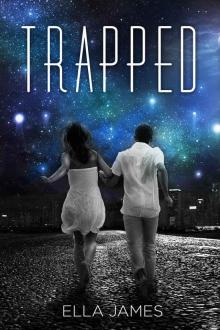 Trapped
Trapped Off-Limits Box Set
Off-Limits Box Set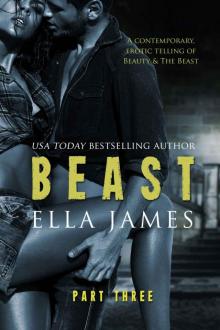 Beast, Part Three
Beast, Part Three Crown Jewels
Crown Jewels Red & Wolfe, Part II: An Erotic Fairy Tale
Red & Wolfe, Part II: An Erotic Fairy Tale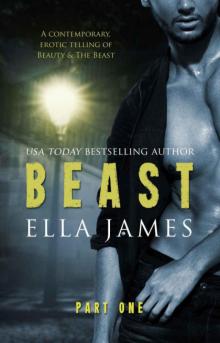 Beast, Part One
Beast, Part One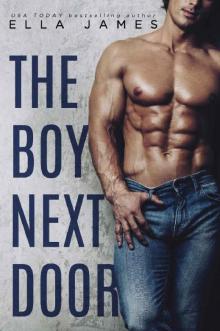 The Boy Next Door
The Boy Next Door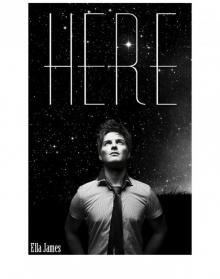 Here
Here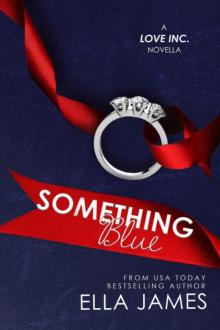 Something Blue
Something Blue Stolen
Stolen Sloth
Sloth Sexy Beast
Sexy Beast The Plan: A Standalone Off-Limits Romance
The Plan: A Standalone Off-Limits Romance Unmaking Marchant
Unmaking Marchant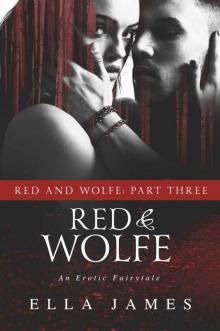 Red & Wolfe, Part III: An Erotic Fairy Tale
Red & Wolfe, Part III: An Erotic Fairy Tale Hansel, Part Two
Hansel, Part Two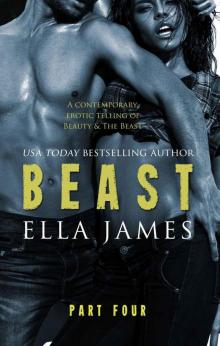 Beast, Part Four
Beast, Part Four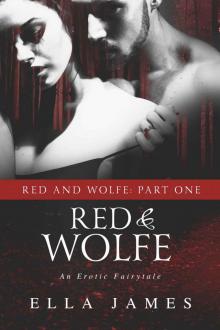 Red & Wolfe, Part I: An Erotic Fairy Tale
Red & Wolfe, Part I: An Erotic Fairy Tale Hansel, Part One
Hansel, Part One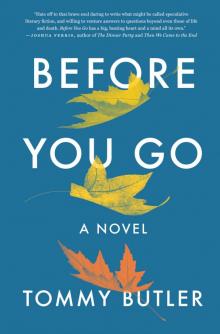 Before You Go
Before You Go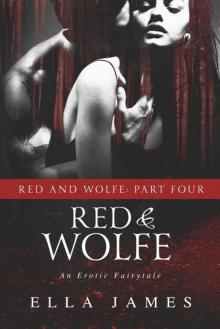 Red & Wolfe, Part Four
Red & Wolfe, Part Four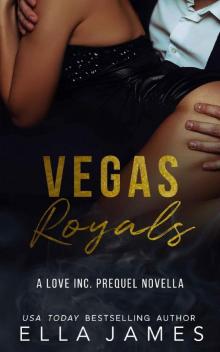 Vegas Royals: A Love Inc. Prequel
Vegas Royals: A Love Inc. Prequel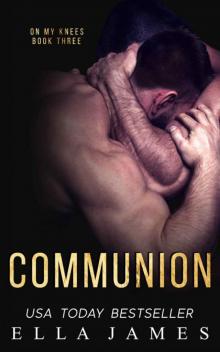 Communion (On My Knees Series Book 3)
Communion (On My Knees Series Book 3)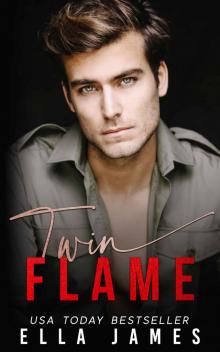 Twin Flame: A Dark Heart Prequel (Dark Heart Duet)
Twin Flame: A Dark Heart Prequel (Dark Heart Duet)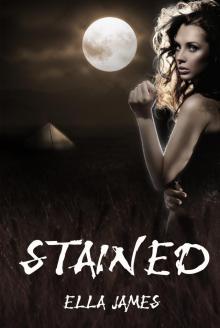 Stained
Stained Sloth: A Standalone Forbidden Romance
Sloth: A Standalone Forbidden Romance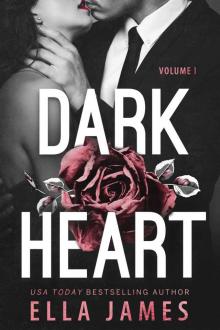 Dark Heart Volume 1: A Star-Crossed Mafia Romance (Dark Heart Duet)
Dark Heart Volume 1: A Star-Crossed Mafia Romance (Dark Heart Duet)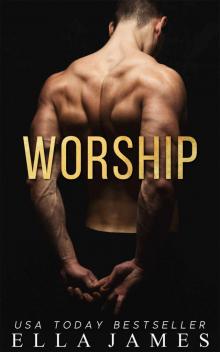 Worship (On My Knees Duet Book 1)
Worship (On My Knees Duet Book 1) Hate You Not: An Enemies to Lovers Romance
Hate You Not: An Enemies to Lovers Romance Taming Cross
Taming Cross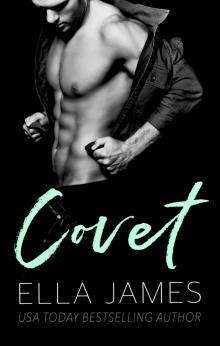 Covet : A Standalone Forbidden Romance
Covet : A Standalone Forbidden Romance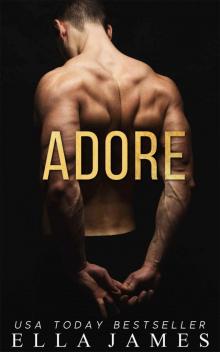 Adore (On My Knees Duet Book 2)
Adore (On My Knees Duet Book 2)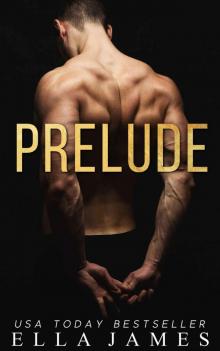 Prelude (On My Knees Duet)
Prelude (On My Knees Duet) My Heart for Yours: A Standalone Forbidden Romance
My Heart for Yours: A Standalone Forbidden Romance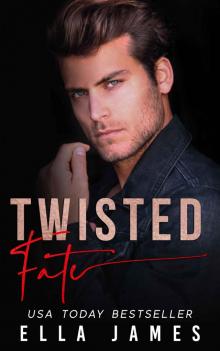 Twisted Fate: A Forbidden Romance
Twisted Fate: A Forbidden Romance